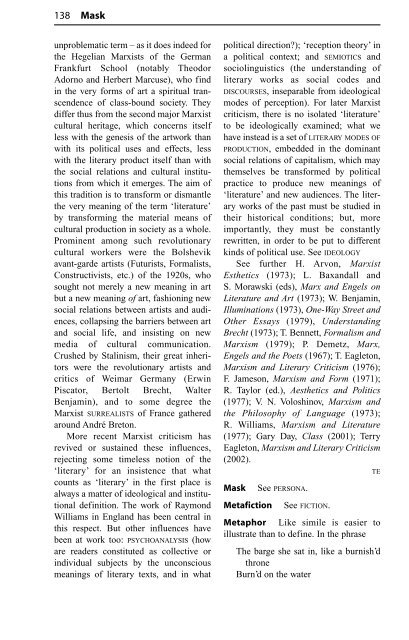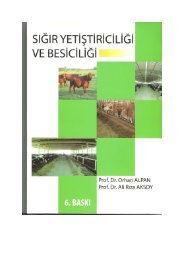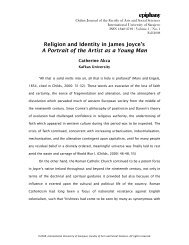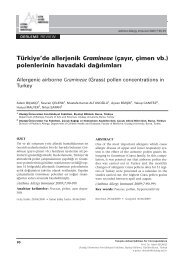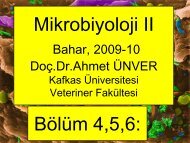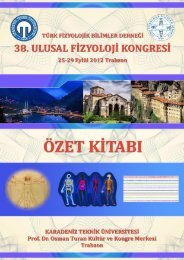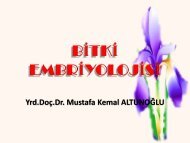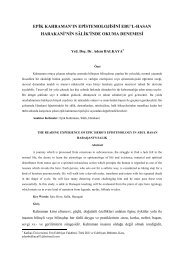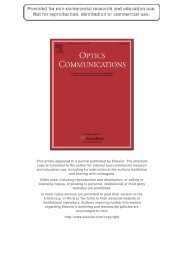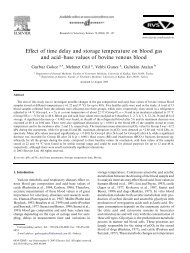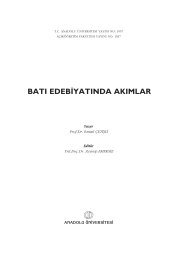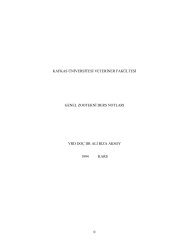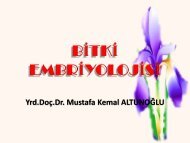The Routledge Dictionary of Literary Terms
The Routledge Dictionary of Literary Terms
The Routledge Dictionary of Literary Terms
You also want an ePaper? Increase the reach of your titles
YUMPU automatically turns print PDFs into web optimized ePapers that Google loves.
138 Mask<br />
unproblematic term – as it does indeed for<br />
the Hegelian Marxists <strong>of</strong> the German<br />
Frankfurt School (notably <strong>The</strong>odor<br />
Adorno and Herbert Marcuse), who find<br />
in the very forms <strong>of</strong> art a spiritual transcendence<br />
<strong>of</strong> class-bound society. <strong>The</strong>y<br />
differ thus from the second major Marxist<br />
cultural heritage, which concerns itself<br />
less with the genesis <strong>of</strong> the artwork than<br />
with its political uses and effects, less<br />
with the literary product itself than with<br />
the social relations and cultural institutions<br />
from which it emerges. <strong>The</strong> aim <strong>of</strong><br />
this tradition is to transform or dismantle<br />
the very meaning <strong>of</strong> the term ‘literature’<br />
by transforming the material means <strong>of</strong><br />
cultural production in society as a whole.<br />
Prominent among such revolutionary<br />
cultural workers were the Bolshevik<br />
avant-garde artists (Futurists, Formalists,<br />
Constructivists, etc.) <strong>of</strong> the 1920s, who<br />
sought not merely a new meaning in art<br />
but a new meaning <strong>of</strong> art, fashioning new<br />
social relations between artists and audiences,<br />
collapsing the barriers between art<br />
and social life, and insisting on new<br />
media <strong>of</strong> cultural communication.<br />
Crushed by Stalinism, their great inheritors<br />
were the revolutionary artists and<br />
critics <strong>of</strong> Weimar Germany (Erwin<br />
Piscator, Bertolt Brecht, Walter<br />
Benjamin), and to some degree the<br />
Marxist SURREALISTS <strong>of</strong> France gathered<br />
around André Breton.<br />
More recent Marxist criticism has<br />
revived or sustained these influences,<br />
rejecting some timeless notion <strong>of</strong> the<br />
‘literary’ for an insistence that what<br />
counts as ‘literary’ in the first place is<br />
always a matter <strong>of</strong> ideological and institutional<br />
definition. <strong>The</strong> work <strong>of</strong> Raymond<br />
Williams in England has been central in<br />
this respect. But other influences have<br />
been at work too: PSYCHOANALYSIS (how<br />
are readers constituted as collective or<br />
individual subjects by the unconscious<br />
meanings <strong>of</strong> literary texts, and in what<br />
political direction?); ‘reception theory’ in<br />
a political context; and SEMIOTICS and<br />
sociolinguistics (the understanding <strong>of</strong><br />
literary works as social codes and<br />
DISCOURSES, inseparable from ideological<br />
modes <strong>of</strong> perception). For later Marxist<br />
criticism, there is no isolated ‘literature’<br />
to be ideologically examined; what we<br />
have instead is a set <strong>of</strong> LITERARY MODES OF<br />
PRODUCTION, embedded in the dominant<br />
social relations <strong>of</strong> capitalism, which may<br />
themselves be transformed by political<br />
practice to produce new meanings <strong>of</strong><br />
‘literature’ and new audiences. <strong>The</strong> literary<br />
works <strong>of</strong> the past must be studied in<br />
their historical conditions; but, more<br />
importantly, they must be constantly<br />
rewritten, in order to be put to different<br />
kinds <strong>of</strong> political use. See IDEOLOGY<br />
See further H. Arvon, Marxist<br />
Esthetics (1973); L. Baxandall and<br />
S. Morawski (eds), Marx and Engels on<br />
Literature and Art (1973); W. Benjamin,<br />
Illuminations (1973), One-Way Street and<br />
Other Essays (1979), Understanding<br />
Brecht (1973); T. Bennett, Formalism and<br />
Marxism (1979); P. Demetz, Marx,<br />
Engels and the Poets (1967); T. Eagleton,<br />
Marxism and <strong>Literary</strong> Criticism (1976);<br />
F. Jameson, Marxism and Form (1971);<br />
R. Taylor (ed.), Aesthetics and Politics<br />
(1977); V. N. Voloshinov, Marxism and<br />
the Philosophy <strong>of</strong> Language (1973);<br />
R. Williams, Marxism and Literature<br />
(1977); Gary Day, Class (2001); Terry<br />
Eagleton, Marxism and <strong>Literary</strong> Criticism<br />
(2002).<br />
TE<br />
Mask See PERSONA.<br />
Metafiction See FICTION.<br />
Metaphor Like simile is easier to<br />
illustrate than to define. In the phrase<br />
<strong>The</strong> barge she sat in, like a burnish’d<br />
throne<br />
Burn’d on the water


